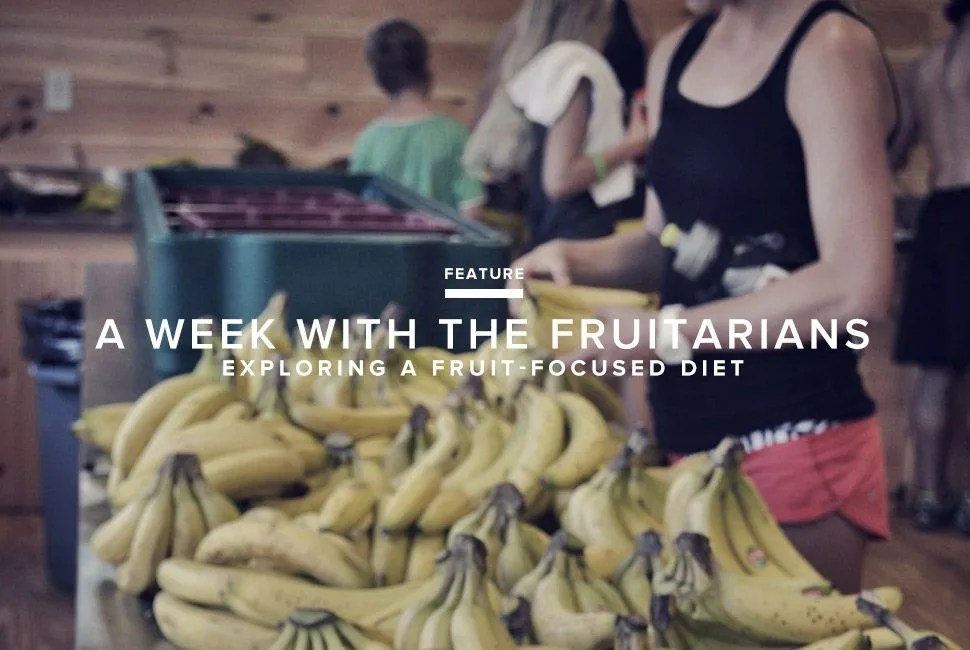Over the course of eight days, I ate little else but fruit. Such is the life of a fruitarian. If you’ve heard of the fruitarians, it’s probably because of their most famous devotee, Steve Jobs, who named the Macintosh computer after his favorite fruit — or it might be in connection with the paleo diet, which advocates eating only what our cave-dwelling ancestors could have procured. If you haven’t, let me fill you in: the fruitarians eat fruit. Lots of it. At the Woodstock Fruit Festival, where 562 fruitarians gathered for a weeklong conference on health, exercise and raw food, the average diet consists of around 80% fruit.
As someone who had eaten standard dorm-room fare for four years, fruitarianism was intriguing. I had heard stories about fruitarian ultramarathoners who regularly ran 120-mile races, and years ago I read an article in Wired magazine about a fruitarian who never got sick. Of course I wanted to try it, so on the morning of the festival I started eating only raw fruits and vegetables.
A Day’s Worth Of Food

For the first two days I felt full, but not satisfied. Remember as a kid, when you told your mom you were hungry and she said, “It’s almost dinnertime; eat a piece of fruit”? You probably said, “but I’ll still be hungry”, and maybe sulked for a bit, but eventually you ate the fruit. Maybe you felt a little better, but you weren’t completely satiated. It was like that. I lusted for bowls of sugary cereal, juicy burgers, and thick burritos; muffins with crystallized sugar on top; fresh baked bread and carrot cake. But that pain didn’t compare to what happened on day three, when I started to feel like shit. That’s what I wrote in my notebook: “Today I feel like shit.” I was tired. My thoughts were sluggish. I know people talked to me but I don’t remember responding. That night, I woke up to pee five times. When you don’t have salt in your system, your body retains less water.
On day four, I began to worry that I had done something incredibly stupid. No one else seemed to be having problems. The average fruitarian looked healthier and happier than almost everyone I knew at home. Many of the men walked around without shirts, and the woman wore yoga pants and sports bras. They woke up early and smiled and laughed. So why was I the only one pallid and shaking, running to the bathroom every hour and hoping I made it in time?
According to fellow festival-goers Anji Bee and Ryan Lum, vegan YouTube sensations and principal members of the California-based musical group Lovespirals, I was experiencing a “healing crisis” — known in the medical community as the Jarisch-Herxheimer reaction — which occurs when the body releases toxins faster than they can be disposed. Another of the festival attendees, Kevin, had a different explanation.
